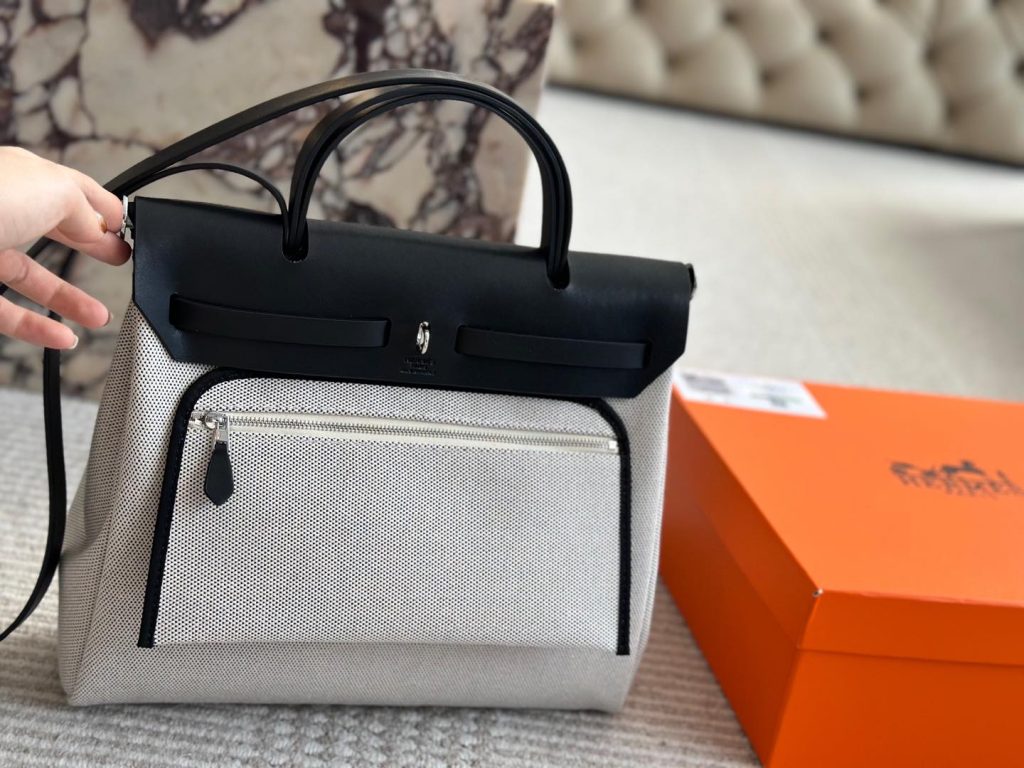Keywords: TikTok fake bag trend, TikTok luxury dupes, viral replica bags
Ideal For: Trend reports, blog features, social media content, digital fashion commentary
Introduction: From Hidden Market to Hashtag Movement
Not long ago, talking openly about buying a fake designer bag was taboo. Counterfeit items were hidden, hushed, and heavily judged. But on TikTok, the conversation has radically changed.
A new wave of creators—especially Gen Z and younger millennials—are boldly showcasing 1:1 replica designer handbags in unboxing videos, style tutorials, and side-by-side comparisons with real bags. These aren’t your typical fake items either. They’re what the internet now calls “superfakes”—hyper-realistic knockoffs that can even fool boutique staff.
Hashtags like #dupebags, #superfake, #luxurydupe, and #tiktokmademebuyit have become magnets for millions of views. As the TikTok fake bag trend gains traction, it’s not just about handbags anymore—it’s about the shifting relationship between fashion, authenticity, and consumer identity.

The Rise of Superfakes on TikTok
What Are Superfakes?
A superfake is a high-grade replica of a luxury handbag, crafted to closely match the original. Unlike low-quality knockoffs, superfakes are made using real leather, accurate hardware molds, correct logos, and sometimes even serial numbers and dust bags.
Brands most commonly “duped” on TikTok include:
- Chanel (Classic Flap, WOC)
- Dior (Saddle Bag, Book Tote)
- Louis Vuitton (Neverfull, Pochette Métis)
- YSL (Loulou, Envelope, Lou Camera Bag)
- Hermès (Birkin, Kelly)
- Prada (Re-Edition 2005, Cleo)
TikTok’s Role in Normalizing Superfake Culture
TikTok’s unique format—short videos, algorithmic reach, and viral hashtag culture—has made it the perfect platform for this trend. Instead of shame or secrecy, creators now build entire personal brands around their superfake collections.
Example Video Types Going Viral:
- Unboxings: “My $300 vs $10,000 Chanel bag – can you tell the difference?”
- Side-by-side comparisons: Real vs replica walkthroughs
- “Hot dupe alerts”: Showcasing trending replicas that are nearly identical to current designer collections
- “Gatekeeping” jokes: Refusing to reveal the seller, then offering subtle clues or linking private Telegram groups
These videos rack up millions of views—not just for curiosity, but because they reflect a new consumer mindset that questions luxury pricing and access.
Hashtag Watch: Superfake Culture by the Numbers
Here are some of the most popular tags currently fueling this trend:
| Hashtag | Views (as of 2025) |
|---|---|
| #dupebags | 190M+ views |
| #superfake | 130M+ views |
| #luxurydupe | 110M+ views |
| #designerdupe | 85M+ views |
| #1to1bag | 60M+ views |
| #tiktokmademebuyit | 15B+ views (used more broadly) |
Users are tagging not only their purchases, but also reviews, close-ups, and comparison tests to engage their audiences.
Why Superfakes Are Going Viral Now
1. Luxury Prices Are Skyrocketing
In the last five years, many top designer brands have raised prices multiple times per year. A Chanel Classic Flap that once cost $5,000 is now over $10,000. Even small YSL or Dior items have crossed the $3,000 mark.
For Gen Z and younger millennials—especially in cities with high living costs—owning luxury items is no longer financially practical. Superfakes offer a visually identical experience for a fraction of the price.
2. Gen Z’s Changing Definition of “Real”
Unlike older generations, Gen Z doesn’t always equate brand authenticity with identity. To them, style, self-expression, and value-for-money matter more than the boutique receipt.
They also view legacy brands with more skepticism. Where older consumers saw exclusivity, Gen Z sees gatekeeping, overpricing, and outdated status games.
3. The TikTok Aesthetic Favors the Visual Over the Physical
TikTok is a visual-first platform. If a bag looks real on camera, that’s often good enough. Most followers will never see or touch it in person.
As a result, the “pass test” is no longer IRL—it’s through the screen. And many superfakes pass with flying colors.
4. Influencers Are Blurring the Line
Some influencers disclose their superfakes openly. Others leave it vague, allowing the audience to guess. A few even film real vs fake blind tests to show how hard it is to spot the difference.
This ambiguity sparks engagement and virality. It also destigmatizes replica culture and presents superfakes as savvy, not shameful.
Ethical and Legal Questions Raised
While TikTok has normalized the conversation, superfakes are still illegal in most countries—especially when sold or imported in large quantities.
There are also ethical concerns:
- Violation of intellectual property rights
- Support of unregulated labor environments
- Impact on designers, artisans, and authentic resale markets
Some creators now include disclaimers like:
“This is for entertainment purposes only. I do not condone or promote counterfeit purchases.”
But many others skip any such warning.
TikTok, for its part, has begun removing content that directly promotes sellers, especially those linked to counterfeit marketplaces. Still, the line between review, satire, and promotion remains blurry.
Most Popular Superfake Bag Styles on TikTok Right Now
| Brand | Style | Real Price | Superfake Price | Why It’s Viral |
|---|---|---|---|---|
| Chanel | Classic Flap | $10,200+ | $400–$700 | Passes screen tests; iconic status |
| Louis Vuitton | Neverfull MM | $2,200+ | $180–$300 | Practical, easy to replicate |
| Dior | Saddle Bag | $4,000+ | $300–$500 | High-profile trend piece |
| YSL | Lou Camera Bag | $1,850+ | $180–$280 | Most accurate replica in 2025 |
| Hermès | Birkin 25 | $15,000+ | $500–$1,200 | Status symbol; creator “flex” bag |
| Prada | Re-Edition 2005 | $1,500+ | $150–$250 | TikTok-approved Y2K style return |
The Future of the Trend
The fake vs real bag debate is not new, but TikTok has democratized and visualized it in a way previous platforms never did.
Where does it go from here?
- Luxury brands may need to respond with more accessible entry-level products or even anti-counterfeit tech
- Platforms like TikTok and Instagram may increase moderation of replica-linked content
- Consumers may divide into those who seek brand-backed authenticity and those who simply want the look
One thing is clear: the superfake trend is no longer a fringe movement. It’s part of the mainstream fashion conversation—loud, proud, and very public.
Conclusion: More Than Just a Dupe
“TikTok made me buy it” is more than a joke—it’s become the engine of a new consumer movement. Superfakes are going viral not just because they save money, but because they reflect changing values around fashion, wealth, and ownership.
Whether you see them as harmless style hacks or a growing ethical concern, superfakes are here to stay—for now, at least. And TikTok is where the story unfolds, one unboxing at a time.

